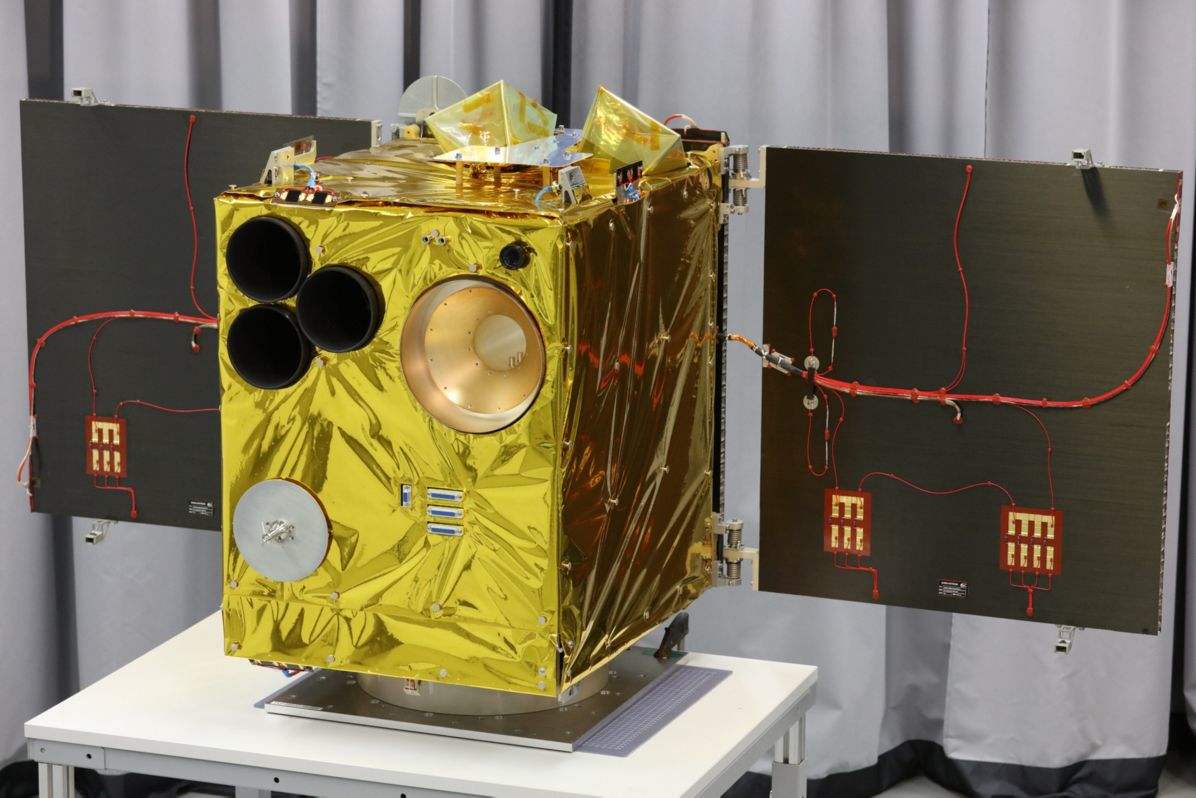A Soyuz-Fregat mission on 14th July carried 73 payloads into three separate orbits, including Stuttgart University’s “Flying Laptop”, developed with support from Airbus DS.
A 110kg mini-satellite from Stuttgart University known as the “flying laptop” has been launched successfully as a secondary passenger on a Soyuz-Fregat flight from Baikonur on 14th July. The satellite was one of 73 payloads carried into three separate orbits, including 48 Flock 2k CubeSats injected into Sun Synchronous Orbit for Planet’s global Earth observation constellation, and Kanopus-V-IK, a 500kg remote sensing satellite for the Russian government.
The main payload on the Flying Laptop is the so-called Multi-Spectral Imaging Camera System (MICS), which consists of three separate cameras, using filters for green, red, and near-infrared.
The satellite also carries a Panoramic Camera, which has a wider field of view for large scale observations and public outreach. This system is based on a commercial off-the-shelf product.
The satellite will also monitor international ship traffic by receiving Automatic Identification System (AIS) signals and combining this data with the MICS pictures. The Flying Laptop will also search for Near Earth Objects, using its Star Sensors.
Furthermore, a reconfigurable Field Programmable Gate Array (FPGA) architecture is implemented as the Payload On-Board Computer. In addition, the satellite features three GPS sensors, allowing for a precise determination of the position and attitude of the satellite.
Development of the Flying Laptop, especially its satellite platform technology, was supported by Airbus Defence and Space. This “Future Low-cost Platform” (FLP) is equipped with an Airbus patented integrated new Onboard Computer and Power supply architecture.
The development of the satellite was mainly funded by the state of Baden-Württemberg with substantial additional industry in-kind equipment sponsoring, PhD scholarships and consulting manpower, mainly from Airbus Defence and Space GmbH and Tesat-Spacecom GmbH & Co.KG.

